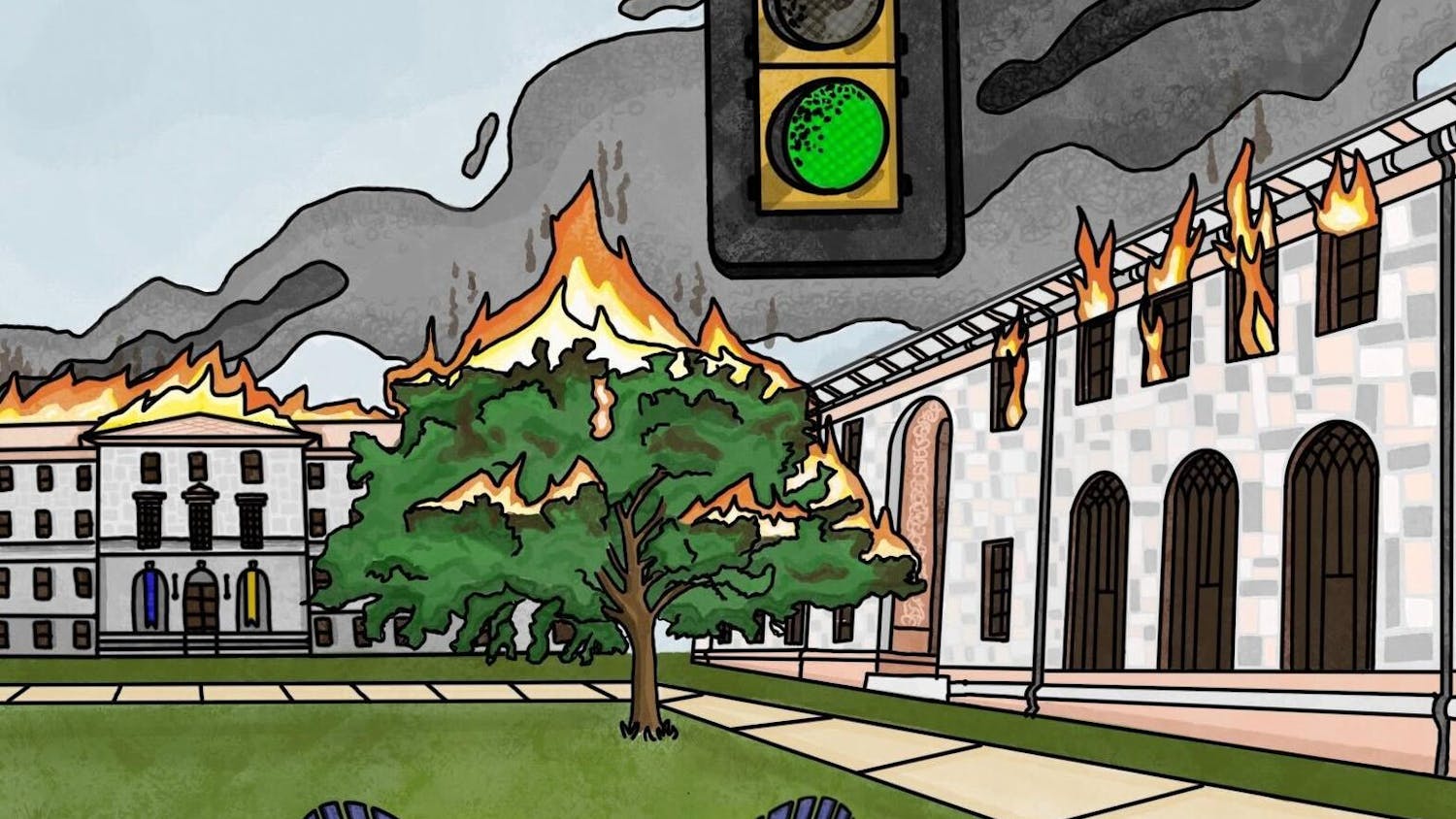
When we hear phrases like “it builds character,” we usually roll our eyes. We’d rather not submit ourselves to unnecessary stress, especially if we feel that our lives are already stressful. What we don’t consider, however, is how antifragile we students are.
The term “antifragility,” developed by Nassim N. Taleb in his book of the same name, is defined roughly as the quality of benefiting from stressors. Think of muscles growing and becoming stronger after exercising (and atrophying when one doesn’t). Without any stress, the antifragile stagnate.
A prime example draws from ancient Greek mythology. Damocles sits on his throne with a sword dangling above his head, suspended only by a single horse hair. Were the hair to snap, his life would end. That is fragility; a small amount of turbulence results in catastrophe. The Phoenix defines robustness, the approximate middle-ground — it is reborn the same whenever it dies, no matter how it dies. Antifragility, the opposite of fragility, is represented by the Hydra. Cut off one head, and two more take its place. It gains from first losing.
The act of learning, of acquiring new information and applying it to the world as we observe it, is innately vulnerable to mistakes. Luckily, or perhaps consequently, students are antifragile; when one finds an incorrect solution to a problem, further exploration yields a deeper understanding of both the error and the nature of the problem — a win-win. This is precisely the type of learning that creates value.
One problem: Emory misleads antifragile students into thinking that they are fragile. When Emory students avoid courses described as “weed-outs,” I see students that are too scared to make mistakes. They are not fragile, yet for some reason they think they are. To refer back to Greek myth, it is like a Hydra who flees from a challenger wielding an ax in fear of losing a head.
Those on pre-professional tracks are the most victimized. These students are stuck in a precarious situation. Because they are goal-oriented instead of process-oriented, and their futures are rooted not on learning but on preparing for their career, they are necessarily fragile. At best, they succeed and end up where they intend. At worst, they fail and are left idling until the next opportunity. They fear failure more than anything else because they are otherwise left with little room for exploration since their education lacks experience with failure.
Because of this, many bright students, out of fear of being fragile, will take the easy way out: only utilitarian, major-related courses when necessary, otherwise easy courses for easy As. This misconceived mindset might be the greatest deterrent of the liberal arts at this university, and most disappointingly, the most rational choice to many students. It is smothering intellectual and academic exploration in the College.
We proudly call ourselves a liberal arts college to prospective students, yet somehow I have seen very little of its attributes. Liberal arts colleges should encourage learning for the sake of learning, and in turn encourage students to make mistakes for the sake of learning. Instead, I see stagnation as students conclude that GPA is the absolute priority. Ask Emory College students about the last time they had read a book for pleasure or debated in the classroom out of passion, and I’m confident you will find evidence that, as supposed liberal arts students, we aren’t exactly going in the direction that we should be. We do what’s necessary to keep our grades up, and nothing more.
In “Emory Must Revive the Liberal Arts on Campus,” Marshall Scholar Annie Li (22C) points out one of the primary problems with our curriculum and pedagogy, which is obvious within student culture but not yet addressed in full by Emory College’s leadership: “For students, GERs are seen as obstacles that we ought to complete as quickly as possible rather than opportunities to explore different fields.”
However, this statement doesn't suggest that the number of GERs should be reduced; it suggests the opposite. Adding requirements means that students will move away from the "rush to complete" approach, since it will become unviable.
Emory College Dean Michael Elliott said in an email statement that the College will implement changes to the GER for students entering in fall 2023. Some of the changes “include reducing the overall number of courses necessary to fulfill the General Education Requirements, requiring students to fulfill breadth requirements earlier in their undergraduate careers, and introducing a new experiential requirement.”
GER reform is the first step towards an actual liberal arts experience, but not in this direction. This will just exacerbate the current problem. GPAs will inflate, and those who want depth (i.e. take harder, more advanced courses) will be punished over those who take many courses with surface-level breadth with the goal of scoring well over all else. More required courses like first-year Seminars would allow pre-professional students to study literature and the humanities without feeling as though they should be taking a more career-applicable course — they’re fulfilling a requirement, after all. As counterintuitive as it sounds, the way to reignite a passion for learning is to first force students into a critical-thinking environment. That little yet firm push would do us well. I would like to be happy to claim some day that I am an alumnus of Emory University — known for producing visionaries, not bankers.
Eric Xu (25C) is from Short Hills, New Jersey.









